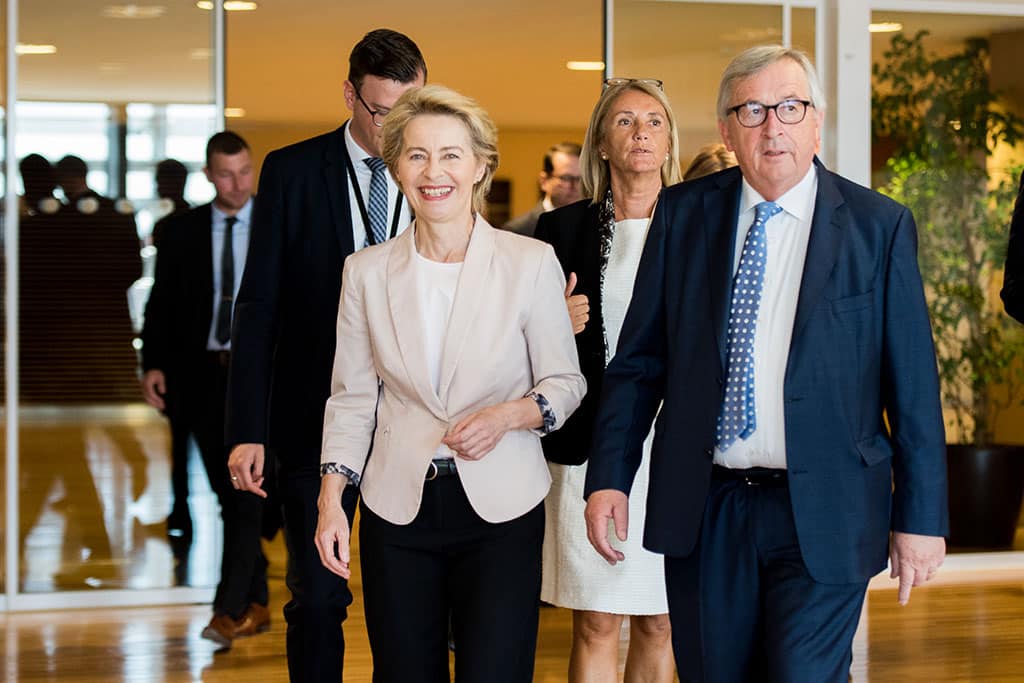
The nomination of Ursula von der Leyen is a victory for those who act like the Austro-Hungarian Emperors of days gone by, freely designating the head of government of their choice.
The extreme difficulty the European Council has faced in reaching a consensus over the EU’s new top jobs is not due to the complexity of nominating candidates for a variety of appointments. On the contrary, nominating a ‘package deal’, as opposed to a single position, makes it easier to compromise, whether on the grounds of ideology, geography or gender.
Neither can their extended deliberation be written off as simply a sign of the times. It is true that cobbling together a government has of late been more complicated in countries where until recently the process was fairly swift –as in the UK, Germany, Spain and Sweden–. Hence, it would not be unreasonable to expect the complexity to be greater at the supranational level, where the trend towards political fragmentation is even higher. However, in my opinion, the reason why the negotiations were so difficult was that beyond the significance of appointing five individuals for a specific five-year period, it was the rules for the future that were being established.
Assuming, mutatis mutandis, that the European Commission wields the executive power in the EU and that the legislative power pertains to the European Parliament (the lower chamber, organised into parties) and the EU Council (which serves as a territorial chamber), then the Council could be considered a type of collective sovereign. In line with this institutional analogy, national leaders would continue to act like 19th-century rulers, free to choose whichever executive head they see fit, with the assurance of broad Parliamentary support and limited opposition.
It is interesting to recall that, in the transition from the 19th to the 20th century, national parliaments (at this point already organised into mass political parties) ceased to tamely accept the candidate selected by the Monarch and began demanding the authority to appoint the Prime Minister. Having a head of the executive selected by the political majority and not by the will of the Sovereign implied an enormous loss of power for the latter. Many (authoritarian) monarchs stuck in their heels; others accepted the democratic logic of a candidate’s selection being the outcome of the elections. Thus began the current form of electing heads of government now usual (with variations) in all European countries: upon being informed of the results of an election, the head of state consults the political parties involved and proposes the candidate with the greatest possibility of obtaining a parliamentary majority.
The Treaty of Lisbon suggests that the same rule be applied to the EU. The Sovereign (the European Council), given the results of the election, would then propose a president for the European Commission who could achieve the support of the parties in Parliament. We are witnessing today, at a supranational level, the same institutional tension which was resolved by national democracies a century ago: the tension between a Sovereign (a collective head of state) and a Parliament that is organised into political families that have designated candidates (spitzenkandidaten) for the position.
The nomination of Ursula von der Leyen (after the rejection of Manfred Weber and of Frans Timmermans) is a victory for those who act like the Austro-Hungarian Emperors of old, freely designating the head of government of their choice, and a defeat for those who act like Belgium’s constitutional monarchs, yielding their power to do so. The battle of wills has been won, for now, by the former. In any case, the hope remains that the nominee will at least have the ability to be a capable Royal favourite, or that the MEPs rebel and, similarly to their predecessors over a hundred years ago, fight for the EU’s swifter transition to a parliamentary democracy.
[Translated by Olivia Scotti. The original version of this post was published in Spanish by El País / Agenda Pública on 2 July 2019]


